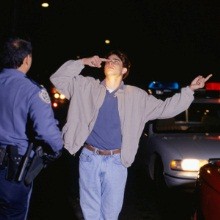
Washington State Laws and Michael Phelps DUI
It has been reported that early morning Monday; Phelps was stopped for traveling 84 miles per hour in a 45 zone. Police were quoted saying, he “was unable to perform satisfactorily a series of standard field sobriety tests. Police also said that Phelps was cooperative, and some sources are suggesting that Phelps’ breath alcohol concentration was twice the legal limit. Apparently, Phelps was convicted of a prior DUI in 2004.
Obviously this case is going to be a highly publicized DUI arrest, but let’s apply the information we have to Washington DUI laws.
First, look at the stop. Speeding nearly 40 miles per hour over the posted speed limit will get you pulled over every time. Clearly, drinking and driving was the first mistake, but speeding is just asking to be pulled over. However, according to the National Highway Traffic and Safety Administration (NHTSA) there are 24 cues that are good predictors that someone is driving impaired. Some will be surprised to learn that speeding is not one of them.
Second, we examine the arrest. Although, we have very little information; let’s focus on the “series of standard tests.” These tests are called Standardized Field Sobriety Tests (SFSTs). They include the Horizontal Gaze Nystagmus (HGN, or eye) test, the Walk and Turn (WAT) test and the One Leg Stand test (OLS). These tests are meant to be instructed and graded in a standardized manner and not following such standards will invalidate the tests. In Washington these tests, including the roadside breath test are voluntary and seldom should one agree to participate. The SFSTs are an opportunity for the police officer to gather evidence against you. Think about it, a world class multiple gold medal winning Olympic athlete was unable to perform them “satisfactorily.” One source even says he “bombed” them. So, how well do you think you would do, sober or not?
Third, the BAC being twice the legal limit must be explored. In Washington, there are many defenses and challenges to the DUI breath tests. What does twice the legal limit mean for penalties in Washington State? Well, in Washington he would be facing a mandatory 48 consecutive hours in jail up to 364 days, possibly a $5,000 fine, a 1-year license revocation and other penalties and assessment.
Fourth, what effect would a prior DUI conviction have? In Washington, Phelps would be facing second DUI penalties if the first conviction were within seven years. Since the first conviction appears to of occurred in 2004, Phelps would be subject to first offense DUI penalties. However, if convicted he probably would not expect minimum penalties. Also, since there is a prior conviction, he may be subject to an ignition interlock device as a pretrial condition (RCW 10.21.055).
It is disappointing to read that any of our heroes is having trouble with the law. However, it is important to remember that they are innocent until proven guilty and also they are only human. Moreover, I hope Mr. Phelps hires an experienced DUI attorney and fights his charge every step of the way. It is very possible that a high profile case, handled correctly, could expose the problems with the prosecution and the potential conviction of many innocent people.
Request a Free Consultation
About
Joseph C. Rome completed his undergraduate education at Washington State University, earning a Bachelor of Arts degree in 1999. He received his Juris Doctorate degree from Western New England College School of Law in 2005.
Quick Links
Contact Information
Law Offices of Joseph Rome
4055 Lake Washington Blvd Site 240
Kirkland, WA 98033
Phone: (425) 429-1729
The information on this website is for general information purposes only. Nothing on this site should be taken as legal advice for any individual case or situation. This information is not intended to create, and receipt or viewing does not constitute, an attorney-client relationship.
© 2025 All Rights Reserved.
